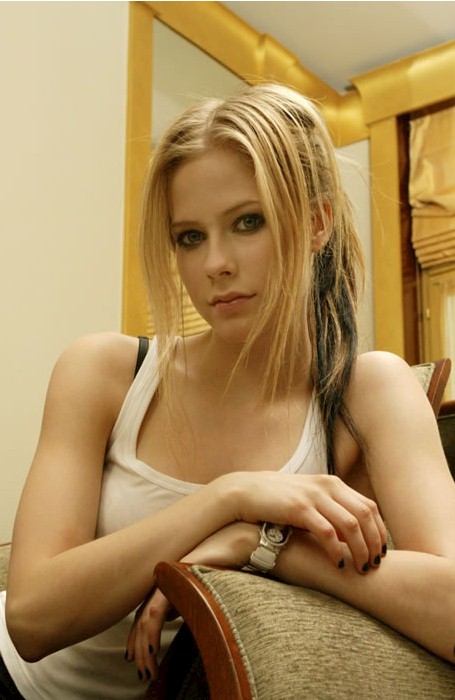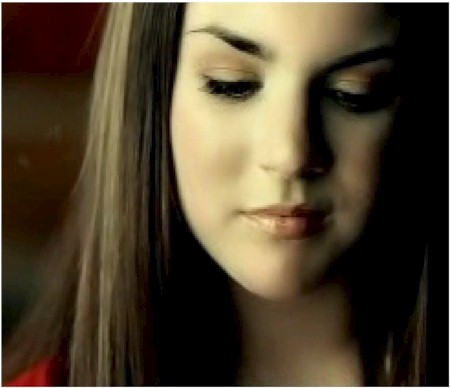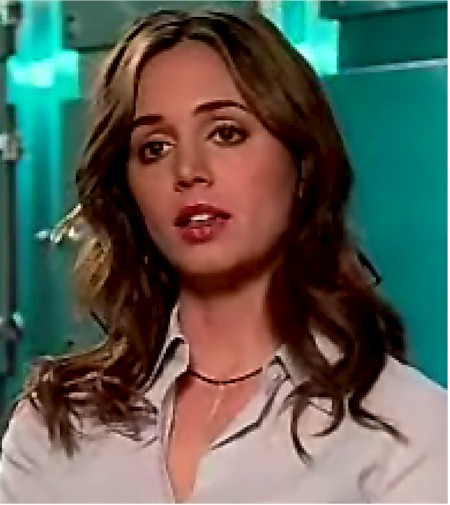   Talented beauties : Avril Lavigne, JoJo Levesque, and Eliza Dushku |
The Idea: By making beauty scarce, we have paradoxically lessened, rather than increased, its value. This article explores how and perhaps why this paucity of beauty has come about, and the damage it has done to our psyches.
What is it about extraordinary beauty that takes away our breath and tears away our reason? The words we use to describe it, drawn from many languages, all suggest madness or physical incapacity: stunning, knock-out, mesmerizing, hypnotic, pretty (from the Germanic word meaning ‘pratfall-causing’), spell-binding. Exceptional beauty can literally render us speechless, weak at the knees, without volition. All we want to do is stare, and sometimes we simply cannot help ourselves. What can nature have intended to make us this way? I believe that in nature there are ‘three beauties’, and each has an essential purpose, one which succeeds in an evolutionary sense, making us better able to survive and thrive and desirous of doing so. The purpose of beauty is attraction. The first beauty is beauty of place. It is what keeps us from going elsewhere and disturbing the ecosystems of others. We are drawn to certain places because of their unquestionable beauty, as if they were always calling us home. We still love, and consider beautiful, forests and streams and waterfalls and hills and flowers and wild animals, because they are all part of our natural home, and were essential elements of our place for three million years before we strayed. It is only if or when that beauty is destroyed that we wander, looking for the beauty we have lost. It is no surprise that today we travel incessantly, almost automatically. We have lost our place. The second beauty is personal beauty. It is what attracts us to community and drives us to procreate. It comes in two forms: physical beauty and beauty of personality, often called charisma. It makes us want to be with those people, be a part of their community, surround them and protect them. This is the beauty whose purpose civilization has most perverted — I’ll return to that in a minute. The third beauty is beauty of community. It is the joy of friendship and of play and of collaboration. It is collective spirit and companionship and creating and doing things together that make us say: We did that! This kind of beauty, too, is now scarce. Here’s how I think that happened: We love all three types of beauty, and our lives are stories of our love. When we first appeared on the planet our lives were full of love and beauty, but then civilization was invented (for well-intentioned reasons) and it produced, for the first time, a scarcity of love and beauty. Civilization required people to behave in unintuitive ways, so its inventors had to create a motivation for these strange new behaviours. What better motivation than to allow only the obedient to experience beauty? So the concept of hierarchy and private property was created, and all things beautiful were appropriated for the elite and apportioned sparingly to their obedient followers. The most beautiful land was restricted, or destroyed to create artificial beautiful things for the elite and the obedient. The most beautiful people were no longer a gift that held the community together, bestowed in return by the community with breeding privileges so they could produce more beauty; they became chattels owned by the elite and jealously kept from the gaze of others. The concept of the ‘family’ was invented to break the bonds of community, limit and destroy the expression of love, lock beauty out of sight, make it a scarce and coveted possession. The family was designed to encourage everyone to procreate, and hence produce more workers for the farms and then the mines and armies and factories and offices owned by the elite. Adultery and coveting beauty became sinful, and people were told by the lords and generals and preachers that they had to work hard and individually both in their daily labours and in their family lives, and that this work was its own reward and necessary to deal with growing scarcity. This scarcity was, of course, created by the exploding human population, and by the destruction of beauty and natural wealth to keep all those people alive and obedient. It was also created by the ever-widening gap in wealth between the elite and the rest of the people, needed to keep the masses worried about survival and hence obedient and busy procreating the only useful resource that isn’t in short supply: babies. The human gene pool has been diluted by making everyone want to be, and able to be, a parent. I suspect that, on average, we’re getting less beautiful every year. Other creatures must find us now, on the whole, a pathetically unattractive species. In nature, beauty is a gift. It is the attractor that keeps the community together, and it gives the community great and endless joy. The astonishing plumage and preening of birds is for the pleasure of the entire community (and judging by the number of birdwatchers in the world, that pleasure is not limited to their own species). We mimic this ancient longing to see beauty with our films, rock concerts and ‘beauty pageants’, nature documentaries and ‘homes of the rich and famous’ tours, but the effect is perverse: Because this joy is no longer from beauty that belongs to the community, it merely reduces our pride, increases our longing, and ‘brings home’ the scarcity, the distance, the inaccessibility of beauty in our modern world. Instead of the delight and gratification of belonging to a community replete with such beauty, we jealously guard what little beauty we have, and covet and seek to possess much more of it. All the conflicted and deviant emotions and behaviours that now so often stem from beholding or imagining beauty may stem from our civilization’s obsession with making it perpetually scarce. |
Navigation
Collapsniks
Albert Bates (US)
Andrew Nikiforuk (CA)
Brutus (US)
Carolyn Baker (US)*
Catherine Ingram (US)
Chris Hedges (US)
Dahr Jamail (US)
Dean Spillane-Walker (US)*
Derrick Jensen (US)
Dougald & Paul (IE/SE)*
Erik Michaels (US)
Gail Tverberg (US)
Guy McPherson (US)
Honest Sorcerer
Janaia & Robin (US)*
Jem Bendell (UK)
Mari Werner
Michael Dowd (US)*
Nate Hagens (US)
Paul Heft (US)*
Post Carbon Inst. (US)
Resilience (US)
Richard Heinberg (US)
Robert Jensen (US)
Roy Scranton (US)
Sam Mitchell (US)
Tim Morgan (UK)
Tim Watkins (UK)
Umair Haque (UK)
William Rees (CA)
XrayMike (AU)
Radical Non-Duality
Tony Parsons
Jim Newman
Tim Cliss
Andreas Müller
Kenneth Madden
Emerson Lim
Nancy Neithercut
Rosemarijn Roes
Frank McCaughey
Clare Cherikoff
Ere Parek, Izzy Cloke, Zabi AmaniEssential Reading
Archive by Category
My Bio, Contact Info, Signature Posts
About the Author (2023)
My Circles
E-mail me
--- My Best 200 Posts, 2003-22 by category, from newest to oldest ---
Collapse Watch:
Hope — On the Balance of Probabilities
The Caste War for the Dregs
Recuperation, Accommodation, Resilience
How Do We Teach the Critical Skills
Collapse Not Apocalypse
Effective Activism
'Making Sense of the World' Reading List
Notes From the Rising Dark
What is Exponential Decay
Collapse: Slowly Then Suddenly
Slouching Towards Bethlehem
Making Sense of Who We Are
What Would Net-Zero Emissions Look Like?
Post Collapse with Michael Dowd (video)
Why Economic Collapse Will Precede Climate Collapse
Being Adaptable: A Reminder List
A Culture of Fear
What Will It Take?
A Future Without Us
Dean Walker Interview (video)
The Mushroom at the End of the World
What Would It Take To Live Sustainably?
The New Political Map (Poster)
Beyond Belief
Complexity and Collapse
Requiem for a Species
Civilization Disease
What a Desolated Earth Looks Like
If We Had a Better Story...
Giving Up on Environmentalism
The Hard Part is Finding People Who Care
Going Vegan
The Dark & Gathering Sameness of the World
The End of Philosophy
A Short History of Progress
The Boiling Frog
Our Culture / Ourselves:
A CoVid-19 Recap
What It Means to be Human
A Culture Built on Wrong Models
Understanding Conservatives
Our Unique Capacity for Hatred
Not Meant to Govern Each Other
The Humanist Trap
Credulous
Amazing What People Get Used To
My Reluctant Misanthropy
The Dawn of Everything
Species Shame
Why Misinformation Doesn't Work
The Lab-Leak Hypothesis
The Right to Die
CoVid-19: Go for Zero
Pollard's Laws
On Caste
The Process of Self-Organization
The Tragic Spread of Misinformation
A Better Way to Work
The Needs of the Moment
Ask Yourself This
What to Believe Now?
Rogue Primate
Conversation & Silence
The Language of Our Eyes
True Story
May I Ask a Question?
Cultural Acedia: When We Can No Longer Care
Useless Advice
Several Short Sentences About Learning
Why I Don't Want to Hear Your Story
A Harvest of Myths
The Qualities of a Great Story
The Trouble With Stories
A Model of Identity & Community
Not Ready to Do What's Needed
A Culture of Dependence
So What's Next
Ten Things to Do When You're Feeling Hopeless
No Use to the World Broken
Living in Another World
Does Language Restrict What We Can Think?
The Value of Conversation Manifesto Nobody Knows Anything
If I Only Had 37 Days
The Only Life We Know
A Long Way Down
No Noble Savages
Figments of Reality
Too Far Ahead
Learning From Nature
The Rogue Animal
How the World Really Works:
Making Sense of Scents
An Age of Wonder
The Truth About Ukraine
Navigating Complexity
The Supply Chain Problem
The Promise of Dialogue
Too Dumb to Take Care of Ourselves
Extinction Capitalism
Homeless
Republicans Slide Into Fascism
All the Things I Was Wrong About
Several Short Sentences About Sharks
How Change Happens
What's the Best Possible Outcome?
The Perpetual Growth Machine
We Make Zero
How Long We've Been Around (graphic)
If You Wanted to Sabotage the Elections
Collective Intelligence & Complexity
Ten Things I Wish I'd Learned Earlier
The Problem With Systems
Against Hope (Video)
The Admission of Necessary Ignorance
Several Short Sentences About Jellyfish
Loren Eiseley, in Verse
A Synopsis of 'Finding the Sweet Spot'
Learning from Indigenous Cultures
The Gift Economy
The Job of the Media
The Wal-Mart Dilemma
The Illusion of the Separate Self, and Free Will:
No Free Will, No Freedom
The Other Side of 'No Me'
This Body Takes Me For a Walk
The Only One Who Really Knew Me
No Free Will — Fightin' Words
The Paradox of the Self
A Radical Non-Duality FAQ
What We Think We Know
Bark Bark Bark Bark Bark Bark Bark
Healing From Ourselves
The Entanglement Hypothesis
Nothing Needs to Happen
Nothing to Say About This
What I Wanted to Believe
A Continuous Reassemblage of Meaning
No Choice But to Misbehave
What's Apparently Happening
A Different Kind of Animal
Happy Now?
This Creature
Did Early Humans Have Selves?
Nothing On Offer Here
Even Simpler and More Hopeless Than That
Glimpses
How Our Bodies Sense the World
Fragments
What Happens in Vagus
We Have No Choice
Never Comfortable in the Skin of Self
Letting Go of the Story of Me
All There Is, Is This
A Theory of No Mind
Creative Works:
Mindful Wanderings (Reflections) (Archive)
A Prayer to No One
Frogs' Hollow (Short Story)
We Do What We Do (Poem)
Negative Assertions (Poem)
Reminder (Short Story)
A Canadian Sorry (Satire)
Under No Illusions (Short Story)
The Ever-Stranger (Poem)
The Fortune Teller (Short Story)
Non-Duality Dude (Play)
Your Self: An Owner's Manual (Satire)
All the Things I Thought I Knew (Short Story)
On the Shoulders of Giants (Short Story)
Improv (Poem)
Calling the Cage Freedom (Short Story)
Rune (Poem)
Only This (Poem)
The Other Extinction (Short Story)
Invisible (Poem)
Disruption (Short Story)
A Thought-Less Experiment (Poem)
Speaking Grosbeak (Short Story)
The Only Way There (Short Story)
The Wild Man (Short Story)
Flywheel (Short Story)
The Opposite of Presence (Satire)
How to Make Love Last (Poem)
The Horses' Bodies (Poem)
Enough (Lament)
Distracted (Short Story)
Worse, Still (Poem)
Conjurer (Satire)
A Conversation (Short Story)
Farewell to Albion (Poem)
My Other Sites





I’ve got no time to read that essay, but I did manage to read your caption. I don’t know about you, but I don’t Ms. Lavigne can’t carry a tune in concert, and Ms. Dushka is a charisma-free zone.
Very insightful. Thanks for this article!
Unlike Darren, I had bags of time to read this post, which, by the way, is a thing of beauty onto it’s own. It is true, however, that I’ve often just skimmed through some of your other posts, as lengthy and charty as they can be, but I have been captivated by this one in particular, as somewhat less lengthy and pictoral as it is.Those of us who’s souls feel ‘owned’ by someone else or by an organization aren’t of much use to our communities, beautiful or not. The idea of beauty being at the centre of our purpose to procreate, participate and appreciate is, in itself, a beautiful idea.This sense of ownership is deep. It goes beyond interpersonal and into nature itself. As you have pointed out…look what we have done!
So you’re saying that humans are getting “uglier” or de-evolving…At least that seems to be one of the closing points, correct me if I’m wrong. Unlike you I suspect that on average, we’re getting more beautiful. Can you say Dental work?Our highly evolved tool set allows us to focus our energies, in a less dangerous manner than ever before in human history. I don’t have to risk bodily harm; broken bones, scars ect. in providing food for myself. Of course there is a whole new set of problems, (obesity, pollution, ect.) in this day and age, but I wouldn’t trade today’s problems for yesterday’s. I have enough faith in mankind’s survival instinct, and creative resourcefulness that I can reasonably say that I would be more comfortable living at some point in the future rather than any time in the past. Perhaps I’m too optimistic, but that’s just my opinion on the matter.
Darren: Hope you’ll have time to read it eventually ;-)Denis, Cyn: Thank you. PP: I wondered if anyone would pick up on this. This was a mischievous last-minute addition to the post just to be provocative. It was when I first saw grey wolves up close in the wild that I realized how amazingly healthy, well-groomed and beautiful animals in the wild are. Pre-civilization there were no bad teeth and no need for dentists — that’s all a result of the sugars and other decay-causing and unhealthy substances we’ve added to our diet. Sadly, we now inflict these same poor diets on our pets.
Point taken, however I won’t sign up for the “past was better” fan club just yet. I will admit that the average person’s diet isn’t the best choice, however I think that especially in this day and age, that more people have the option of eating healthy than ever before. Food from the other side of the world can be bought in the store down the street. The knowledge and information is there, but it’s up to the individual to make the correct choices. I suppose that is one of the greatest downsides of human advancements. Everything we do to make life easier, also makes us lazier, and less able to adapt. There never seems to be an easy solution.